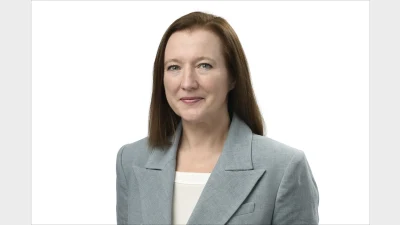Super veteran reflects on transformations in the ‘extraordinary’ industry



Former Funds SA and Rest executive, Jo Townsend, has weighed in on the impact of “never-ending regulation” and the outlook for consolidation in superannuation, drawing on her three decades in the industry.
Speaking at the CFA Societies Australia Investment Conference in Sydney, Townsend termed super as an “extraordinary industry” that comes with heightened responsibilities from managing money for people’s retirement incomes.
Townsend served as chief executive of Funds SA, the specialist investment management firm for the South Australian government managing approximately $40 billion, for eight years. She stepped down in September 2023, passing on the reins to chief operating officer, John Piteo.
Prior to Funds SA, she spent over seven years at Rest, including seven months as acting COO.
Reflecting on the industry’s transformation over the years, she noted its growing size, even as the number of super funds is on the decline, as encouraged by the Australian Prudential Regulation Authority (APRA) to achieve benefits of scale.
“It’s pretty clear that initially, there were far too many super funds,” Townsend said. “Consolidation has been going on, but only recently, and certainly only at the big end of town and depending on what articles you read, there’s speculation that we’ll end up with eight funds that are completely going to dominate the industry.
“It’s a theme that has started and will need to continue into the future.”
According to JP Morgan’s latest Future of Superannuation report, there were 137 funds in March 2023 compared to 174 in September 2021, a reduction of 37 funds either from merging or closing.
Since the start of 2022, there have been at least 13 super mergers with the largest being the merger of QSuper and Sunsuper to create Australian Retirement Trust in February 2022. Other large mergers include Hostplus acquiring both Statewide Super and Maritime Super and HESTA acquiring Mercy Super.
However, given the large size of the super system and its importance on Australians’ retirement outcomes, she said the regulation appeared to be “never ending”.
“Now, I’m not saying that’s necessarily a bad thing, it doesn’t always hit exactly the spot it’s trying to spot, but there’s nothing wrong with putting rules in place that people need to manage,” she said.
“But the problem with all the changing regulation is that it actually costs money in a situation where there’s an increasing focus on fees in the industry, and I would propose that people just lose confidence in the system when rules do change.”
Threats and opportunities arising from the performance test
Turning to APRA’s annual superannuation performance test, which is designed to improve member outcomes by assessing the long-term performance of super products against tailored benchmarks, Townsend shared her experience complying with the regulation at Funds SA.
“We weren’t APRA-regulated, [but] we were complying in the spirit of the APRA regulation and legislation,” she said.
“It’s an implementation test and it’s very much at that asset-class level, so it’s a classic case of what gets measured gets managed, and it leads to making investment decisions that are designed around business risk as opposed to managing long-term investment risk.
“So, I think the threat is that potentially, it’s not necessarily going to lead to the best long-term financial outcomes for members.”
However, she also saw opportunities arising from the test, particularly in the ramping up of consolidation efforts and highlighting underperforming products.
Townsend said: “I do think consolidation is necessary but for a very long time, the industry wasn’t terribly proactive [about this] and so, what it appears to me is that the regulator has come up with an instrument to get some consolidation happening.
“To the extent that it does weed out retirement products that are expensive or underperforming, [the test] will be a good thing for members who might be in those products and not engage or understand.”
Recommended for you
Governor Bullock took a more hawkish stance on Tuesday, raising concerns over Trump’s escalating tariffs, which sent economists in different directions with their predictions.
Equity Trustees has announced the appointment of Jocelyn Furlan to the Superannuation Limited (ETSL) and HTFS Nominees Pty Ltd (HTFS) boards, which have oversight of one of the companies’ fastest growing trustee services.
Following growing criticism of the superannuation industry’s influence on capital markets and its increasing exposure to private assets, as well as regulators’ concerns about potential risks to financial stability, ASFA has released new research pushing back on these narratives.
A US-based infrastructure specialist has welcomed the $93 billion fund as a cornerstone investor.













